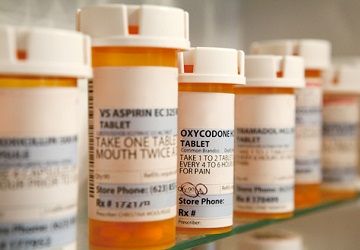New Policy on Opioids Adopted by ADA
The new resolution encourages a dialogue between dentists and their patients if opioids are being considered as a treatment option.

The American Dental Association (ADA) House of Delegates passed Resolution 64H-2016 last year in October. The new resolution addresses the use of opioids in the treatment of dental pain and includes new recommendations for dentists.
Dentist’s Money Digest has been following the dental community’s response to the growing opioid crisis for some time. In in an effort to reduce rates of opioid abuse in America, the ADA has committed to tackling the problem head-on. The new resolution encourages a dialogue between dentists and their patients if opioids are being considered as a treatment option. Dentists should speak to patients about their responsibility in preventing the “misuse, abuse, storage, and disposal of prescription opioids.” Further, dentists are advised to register with and faithfully use a prescription drug monitoring program.
In addition to a candid conversation about responsible opioid use, the ADA now also recommends that:
· Dentists conduct a thorough medical and dental history with each patient to determine the use of current medications, evaluate for potential drug interactions, and identify a history of substance abuse.
· Dentists should also regularly review and follow Centers for Disease Control and Prevention (CDC) and state licensing board recommendations for prescribing opioids.
· In determining treatment, dentists are advised to find treatment options based on best practices to prevent any worsening or relapse of opioid abuse.
· If appropriate, dentists should consider nonsteroidal anti-inflammatory medications as a first-line therapeutic intervention for acute pain management.
· Dentists should identify and use multimodal pain strategies for acute postoperative pain management instead of prescribing opioid analgesics.
· Dentists should coordinate care with other doctors, including pain management specialists, if appropriate when prescribing opioids for chronic pain conditions.
· Dentists should continually educate themselves regarding addictive behaviors and disease and pain management related to opioid prescribing.
Finally, the ADA included a statement supporting dentists and responsible, professional prescribing of opioid medications in their practices: “Dentists who are practicing in good faith and who use professional judgment regarding the prescription of opioids for the treatment of pain should not be held responsible for the willful and deceptive behavior of patients who successfully obtain opioids for non-dental purposes.”